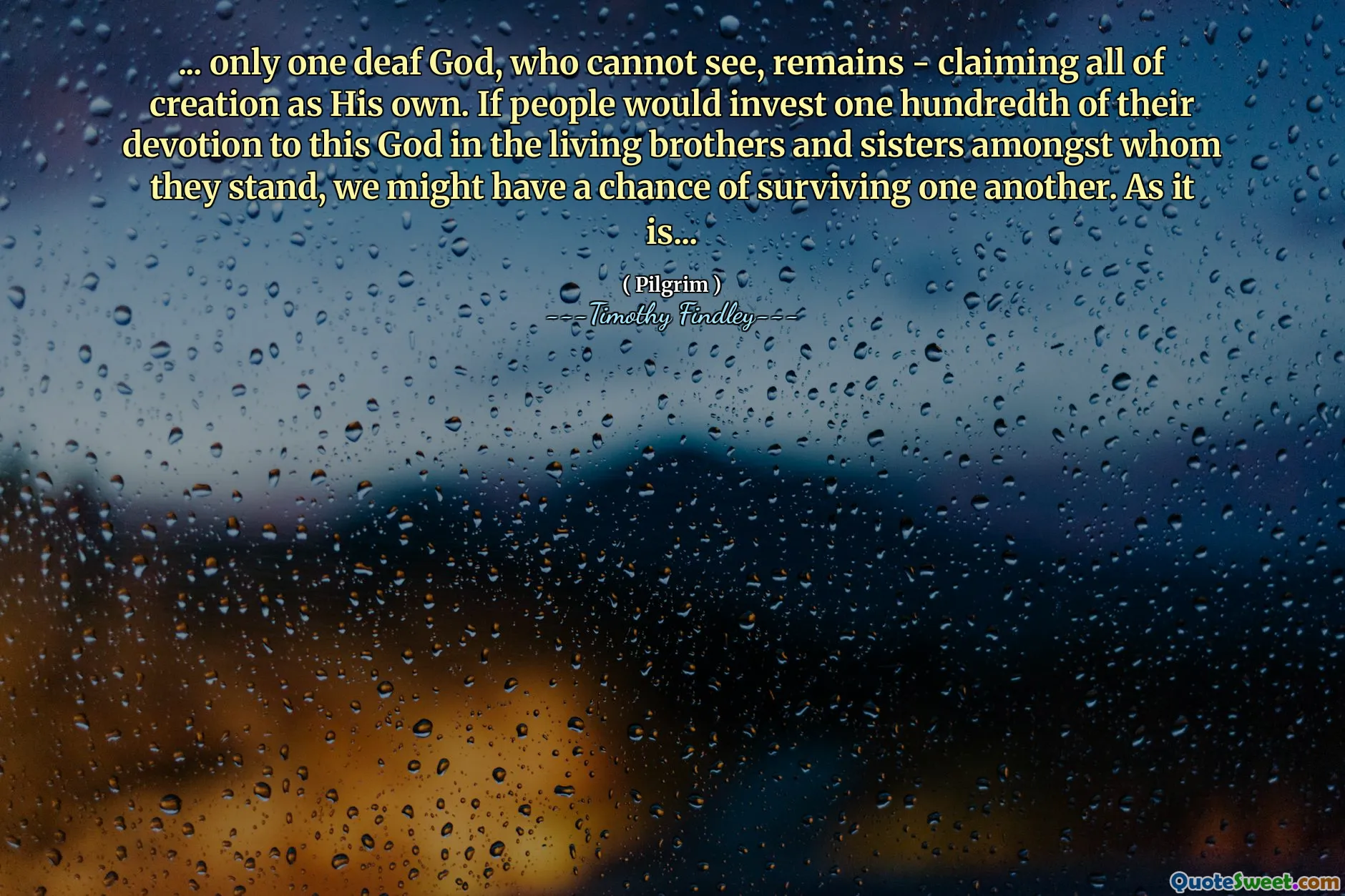
... only one deaf God, who cannot see, remains - claiming all of creation as His own. If people would invest one hundredth of their devotion to this God in the living brothers and sisters amongst whom they stand, we might have a chance of surviving one another. As it is...
This quote from Timothy Findley’s "Pilgrim" presents a piercing critique of spiritual devotion misdirected at an abstract or distant divine figure, rather than toward tangible human relationships. The image of a "deaf God" who "cannot see" emphasizes a deity who is arguably absent or indifferent to human suffering and complexities. This depiction strips away traditional notions of an omnipotent and omniscient God, inviting readers to question the nature and focus of their spiritual worship.
Findley suggests that humanity might improve its chances of coexistence and mutual survival not by increasing piety or religious allegiance to theological abstractions but by reallocating even a fraction of that devotion towards fellow human beings. It touches on a profound ethical and spiritual dilemma: how often do people overlook the immediate, tangible," living brothers and sisters" in favor of dedicating their faith and energy to an unseen, perhaps unresponsive divinity?
The quote encourages a reorientation of allegiance from distant worship practices towards practical compassion and empathy within human communities. It reflects on how misplaced priorities in faith can lead to social fragmentation, disconnect, or even conflict. Overall, it's a call for active love and recognition of human dignity, suggesting that our survival together depends more on mutual care than on religious devotion alone. It challenges readers to reflect on their own spiritual life and to consider the impact of their values on the broader social fabric.






